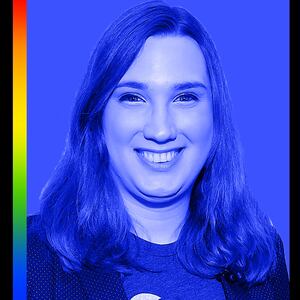In this special series, LGBT celebrities and public figures talk to Tim Teeman about the Stonewall Riots and their legacy—see more here.
Robert Gant is an actor (Ben in the American version of Queer as Folk and appearances in many other shows, including Supergirl and The Young and the Restless).
When/how did you first hear about the Stonewall Riots, and what did you make of it?
I first heard about the Stonewall Riots in 1990 during my senior year at the University of Pennsylvania. I was taking a course at Penn’s Annenberg School for Communication called “Gays in Cinema.” I suspect the class focused on film because there hadn’t been many LGBT references on television at the time and certainly not enough for a class.
I remember being struck by a sense of empowerment at the idea that members of our community had pushed back so strongly against the oppression and subjugation that had always been the norm for gay people.
Like most of us, I related to the feelings of second-class citizenship that we all lived under. Those feelings and experiences had never meshed well with my strong conviction about being an American and loving this country and having a deep reverence for our founding tradition of freedom and equality.
From the time I recognized this conflict, there had always been an internal dissonance between my being gay and my loving my inherent freedom and equality as an American. So the sudden awareness of Stonewall as an example of others standing up and fighting for that freedom was, to say the least, deeply heartening, thrilling.
What is their significance for you?
Their significance for me is profound. The journey for gay people throughout the course of history has been largely one of hiding. We were, as so memorably used against Oscar Wilde at his gross indecency trial, “the love that dare not speak its name.” So such an overt, impassioned act of sustained rebellion and heroism by the participants in Stonewall was an invaluable, foundational moment in our modern ability to walk and thrive more freely every day.
How far have LGBT people come since 1969?
We LGBT folk have certainly come a long way since then. Fifty years later, the landscape for us has shifted extraordinarily quickly. While acknowledging at the outset that there is still much more to be accomplished, our outer and inner lives have transformed. We are standing in our authentic power more than ever before. And again, there’s much more to come, both at home and abroad.
What would you like to see, LGBT-wise, in the next 50 years?
In the next 50 years, I would like to see complete equality in the law, both domestically and internationally, as well as equality in the way we are regarded and treated by our straight fellows around the world. And I would like to see LGBTQ people all feel that freedom, not only around us but in our own hearts and minds as well—to know that who we are has always been, and always will be, inherently and inarguably equal.


